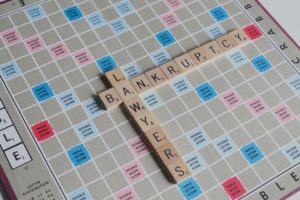
What happens when you file bankruptcy?
When you are filing bankruptcy, you will be working with a trustee to generate a list of creditors and assets as well as they will prepare the paperwork for your bankruptcy. Once reviewed and you ensure all your outstanding debts are accounted for, you will sign and bankruptcy starts. At this point your trustee will ensure all creditors are aware of your bankruptcy proceedings and will no longer contact you for payment etc. You will have obligations to do monthly reporting, credit counseling and any other obligations as listed by your trustee, until a point you are discharged from your bankruptcy (usually about nine months to be discharged).
How do you rebuild your credit?
You can start rebuilding your credit as soon as you are discharged from your bankruptcy. Most lenders require for two years to pass from the time you get discharged to the time you apply for a mortgage. A great way to get started is by getting a form of prepaid credit card – this simply means you pay the upfront balance of the card ($500 upfront for a $500 card), this simply is a risk-free credit card for the company and allows you to start rebuilding your credit. Along with this you will want to have 2 trade lines (credit cards, car payments, loan payments, etc.). Based on how long after you’ve been discharged along with how much credit rebuilding you have done will determine if you will be able to use a mainstream lender or if you will need to use a B lender.
What is the difference between a mainstream lender and a B lender?
A mainstream lender will allow a mortgage for individuals with a good credit standing at current market rates with a lower down payment required.
If you haven’t rebuilt your credit to acceptable levels for mainstream lenders you can alternatively look at financing from a B lender. A “B Lender” would traditionally have higher interest rates and a higher down payment requirement due to a lower credit score or history. “B Lenders” typically utilize shorter terms such as 1-2 year terms, this way as a client you can have an opportunity at the renewal to reapply for a better interest rate if you have kept rebuilding your credit and ensuring all your payments are on time.
Whether you are just applying for bankruptcy or if you have just been discharged, there is never a better time to start working with a mortgage professional to assist in credit rebuilding and getting you into the home you deserve to own.


Recent Comments